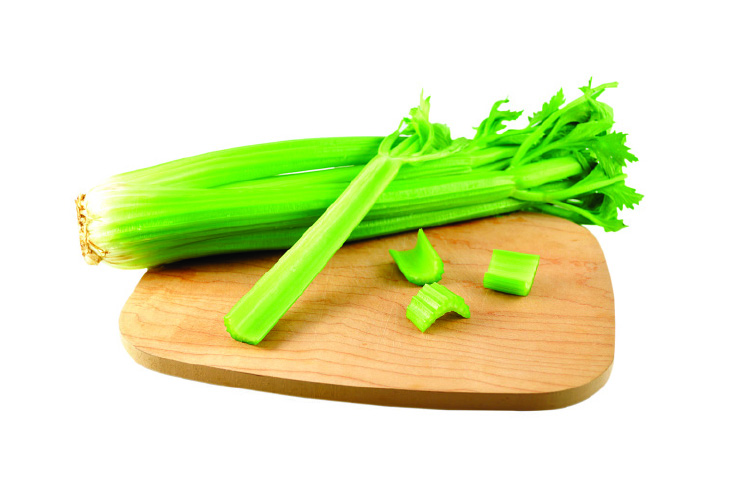Celery: Stick of Hope
Celery (Apium graveolens) is a member of the Apiaceae (Parsley) family and a relative of dill and carrots, and said to have originated from the Mediterranean. Celery is one of the oldest vegetables ever used in recorded history. The initial mention of the medicinal properties of celery leaves dates back to the 9th century B.C., when celery made an appearance in the Odyssey, the famous epic by the Greek poet, Homer. In ancient Greece, celery was known as selinon, and was considered as a holy plant where the leaves were used to decorate winners of the Nemean Games.
- The high amounts of vitamin C in celery promote a healthy immune system
- Celery is packed with antioxidants and compounds that fight bacteria, viruses and inflammation
- Celery contains pthalides, which have been shown to lower blood pressure by relaxing the muscles around the arteries and allowing vessels to dilate
- Calcium, magnesium, and potassium in celery also helps regulate blood pressure
- The pthalides in celery may also lower cholesterol by increasing bile acid secretion
- Contains coumarins which have been shown to be effective in the prevention of cancer
- The presence of coumarins in celery gives relief from migraines
- A well-known diuretic that balances potassium and sodium to help flush out excess fluid from the body
- Celery seeds are said to improve the quantity and quality of urine and are a useful diuretic for urinary tract infections (UTIs)
- With loads of analgesic, anti-inflammatory and diuretic compounds, as well as some calcium blockers, celery seed extracts seem appropriate for treating bladder infections
- Has anti-inflammatory properties, which may help with ailments attributed to inflammation such as arthritis
- Low in calories, with lots of filling fibre. It is a great weight loss aid
- Celery seems custom made for fighting halitosis (bad breath)
















